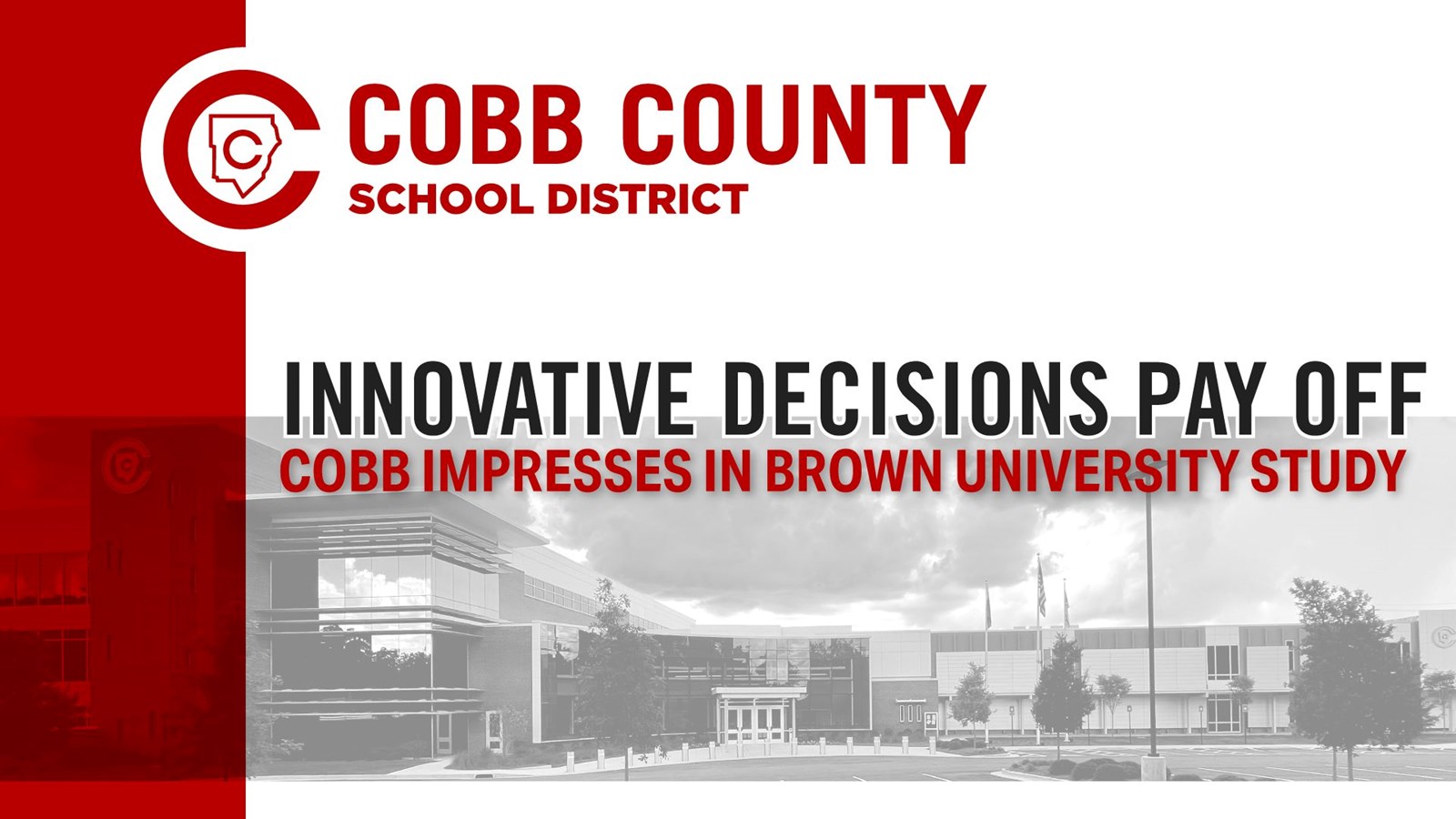Success of CTLS Spotlighted in Ivy League Study

Although the Cobb Teaching and Learning System (CTLS) is a digital learning platform created by Cobb students, parents, and educators, the platform’s reputation for success has reached far beyond the boundaries of Cobb County.
Brown University recently published a national academic study that praised CTLS for improving student performance, helping educators work together, incorporating technology that directly impacts the classroom, and using real-time student data to make decisions.
Due to the success of the platform, and its ability to provide real-time data to Cobb teachers and District leaders, the study concluded that “an encouraging number of indicators suggest that CTLS likely played a role in Cobb’s impressive academic recovery from the Covid-19 pandemic.”
Brown University Chair of Education Policy Ken Wong, who led the study, repeatedly cited the positive impact of CTLS on student performance. According to the study, strengthening Cobb educators’ ability to work together may be one of the reasons that students’ academic performance has increased. Also, according to the study, the educator collaboration and teamwork that takes place throughout Cobb would not be possible without the “transformative technology” driving the digital platform.
Wong also cited, “CTLS’s digital infrastructure, which is a marvel, deftly weaving disparate modules together in a virtually seamless way through both form and function.”
As an example, CTLS allows students and parents to access a variety of tools, all in one place, seamlessly. The platform, built here in Cobb, avoids “the pitfalls that other districts had experienced” because Superintendent Ragsdale has consistently prioritized the creation of Cobb’s own digital learning environment instead of an “off-the-shelf” platform not tailored to the needs of Cobb.
Cobb teachers interviewed for the study “enthusiastically” praised how CTLS enables them to share resources with their fellow educators, facilitate communication, and work together as a team “to more effectively serve their students.”
The technology driving CTLS also received more praise that may catch the attention of other school districts. The study pointed to the teachers, students, and school leaders throughout the District “who believe (rightfully) that the current version of CTLS is a singular feat of technology, with some stating that they ‘can’t think of anything that [the district] missed’ in the development process.”
Part of the platform’s successful use of technology is the focus on real-time data utilization, which enables District educators to look at each child individually and make instructional decisions in real time. That real-time data alerts Cobb teachers to what their students know in time to change what happens in the classroom.
“We have talked a lot about CTLS being a one-stop-shop that helps students learn, makes the classroom easier for teachers, and is convenient for parents. We are proud this study reinforces Superintendent Ragsdale's and the Board’s commitment to CTLS and to Cobb students,” said Chief Strategy Officer John Floresta.
Elsewhere in the Ivy-league study, the authors reference the academic losses that occurred due to the pandemic and again concluded that CTLS “may well have contributed to Cobb’s quick recovery from these losses, with CCSD exhibiting a laudable rebound between 2020 to 2022.”
According to the study, CTLS not only serves Cobb educators through CTLS Assess and Cobb students through CTLS Learn, but it also encourages parental engagement.
The creation of CTLS Parent points to Cobb’s “prioritization of community relationships, especially as it pertains to the parents and guardians of their students.”
The study applauds CTLS’s design, which gives “parents and guardians an unprecedented level of access to student data, teacher and administrator communication, digital materials, intra-scholastic parent collaboration opportunities, and more.”
Cobb’s parents were “especially vocal” about the advantages of students using CTLS. Parents and classroom teachers both credited CTLS with minimizing the negative effects of school absences and transiency.
Finally, the study found that CTLS has earned the confidence of Cobb stakeholders.
“By all accounts, the direction of CTLS’s development has been mapped out according to educator, administrator, and parent feedback,” the study reported.
Furthermore, the study cites the “teacher-led” methodology behind CTLS as helping the platform earn “a remarkable level of teacher enthusiasm and buy-in...”
“What is consistent across stakeholders, importantly, is the prevalent belief that CTLS is succeeding, with some room left for growth,” the study concluded.
